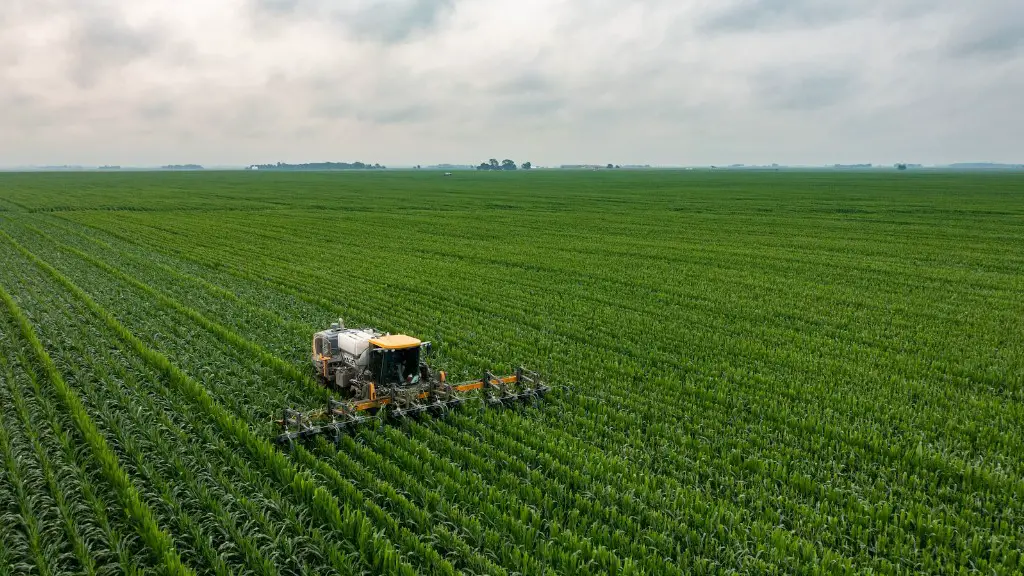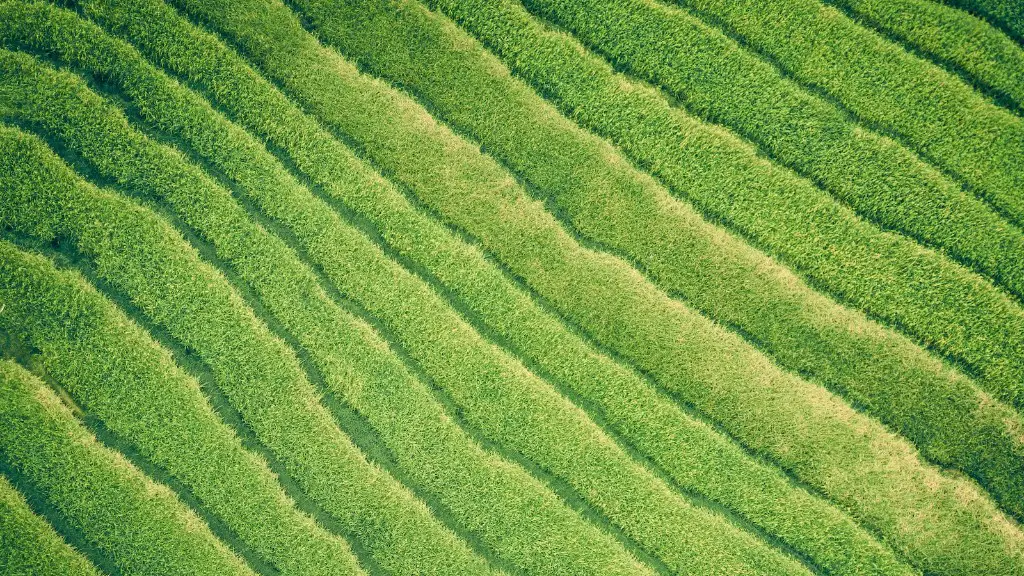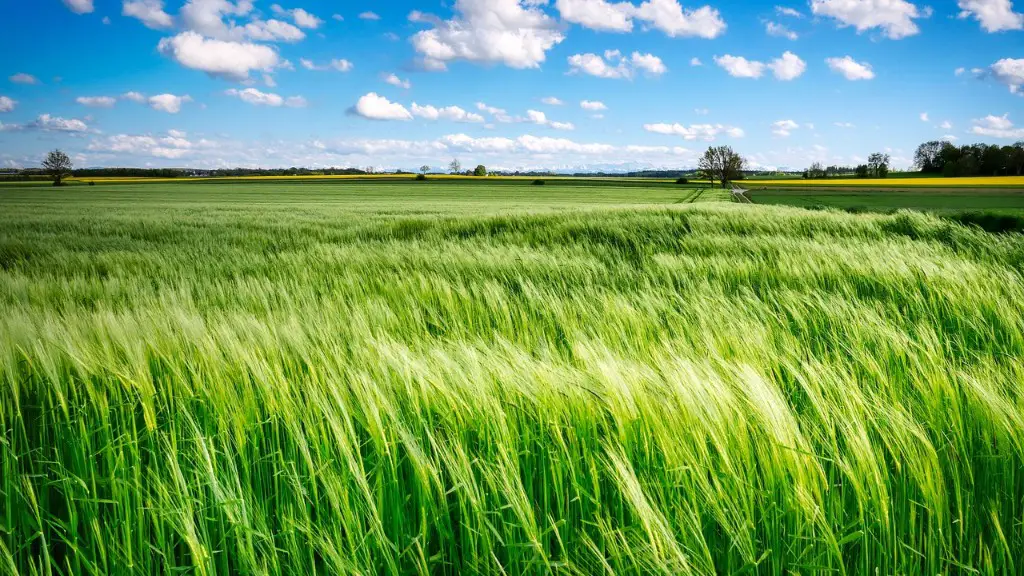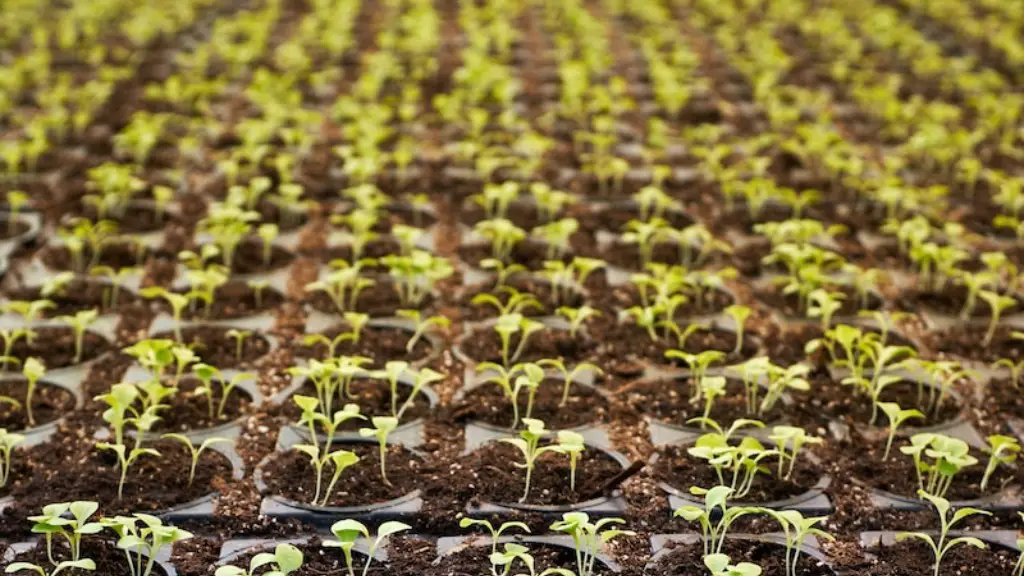Agriculture has been part of humankind’s evolution since time immemorial. It is believed that agriculture was first discovered around 12,000 years ago in the Middle East. This was a great step in the evolution of humanity, and it enabled us to domesticate plants and animals and develop permanent settlements. Agriculture allowed us to settle down, build communities, and produce foods that were high in diversity, quality and quantity. Since then, the practice has continued, and with the invention of new technology, it has become more efficient and efficient.
Prior to the discovery of agriculture, humans were hunter-gatherers, a nomadic lifestyle that enabled them to find food, shelter, and water when they needed it. This lifestyle revolved around the routine of chasing down game as well as gathering and eating wild plants. As civilizations began to emerge, humans became more organized, and the need for food that was consistent in quality, quantity and variety became even more important.
Agriculture was the solution to that need – and it was a revolutionary one. By domesticating plants and animals and clearing land for larger fields, humans could easily cultivate, process, and store food, enabling them to settle down and form permanent communities. This allowed multiple generations to reside in the same place and live a more comfortable life than they would have if they had had to continuously move in search of sustenance and shelter.
Today, agriculture continues to be an important part of the world economy, enabling us to produce vital foods, fibers, fuel, and other vital resources. It also provides us with employment opportunities and drives advances in technology and research, as well as providing important raw materials for industry, such as cotton, wheat, and other agricultural commodities.
Overall, agriculture has had a massive impact on human development, from the earliest days of the initial discovery to its widespread adoption around the world. It has enabled us to settle down, form permanent communities, and produce vast quantities of food with less effort than ever before. With the introduction of new technologies and practices, the impact of agriculture, and the way it has shaped our world, is more evident today than ever.
Impact of Agriculture on the Environment
The development of agriculture has had a huge impact on the environment. Not only did it enable a more efficient and expansive use of land, it also resulted in the conversion of extensive areas of land into fields and farms. This has resulted in a significant reduction of natural habitats, impacting biodiversity, as well as leading to increased water and air pollution, and greater levels of sediment run-off, dust, and fertilizer.Agriculture also has also contributed to an increase in greenhouse gas emissions due to the increased use of fossil fuels for farming, such as for plowing, planting, and transportation. This has contributed to a global rise in temperature, increasing the chances of extreme weather events such as floods, droughts, famines, and even conflict.
Additionally, the use of intensive farming practices like monocropping, where one crop is planted year after year, has led to a decline in soil fertility. This has led farmers to use an increased level of chemical fertilizers, which in turn damages soil and groundwater, threatening both human and ecosystem health.
Overall, while agriculture has been essential in helping to sustain human life, it has had serious negative impacts on the environment. Therefore, it is essential that we take steps to reduce its environmental footprint by utilizing more sustainable agricultural practices, such as regenerative farming, and increasing investment in research and development.
Impact of Agriculture on Social Development
Agriculture has also had beneficial impacts on the development of human social structures. By enabling humans to settle down, the invention of agriculture set the stage for the rise of civilisation. Communities could now easily produce and store enough food for multiple generations, enabling them to focus on other pursuits and develop specialised professions, such as artisans or scholars.
Agriculture also provided a stable food supply to communities and enabled them to trade surpluses for goods or services with neighbouring settlements, laying the foundations for larger, more organised societies. Additionally, it enabled the development of agriculture-based systems of land ownership, which provided security and stability for those owning the land.
In the modern era, agriculture is still one of the foundational pieces of human economies, providing vital foods and jobs to communities around the world. It also provides sustenance and a source of income, allowing communities to thrive and build sustainable futures.
Agriculture has had an essential role in shaping the development of human societies throughout history and continues to be vital in sustaining it today. Without the invention of agriculture, the stability and progress of modern civilisation would likely not exist in its current form, and the world would be in a very different place.
Impact of Technology on Agriculture
The invention of agriculture has led to a wide range of technologies being developed over the centuries, from primitive tools like hoes and plowshares to the sophisticated machinery of today. This has enabled us to expand our cultivated land, produce an abundance of food, and even cultivate crops in previously un-fertile lands. Technology has also enabled us to increase efficiency in agricultural processes, eliminating much of the harder, manual labor and increasing yields.
Advances in biotechnology have also enabled us to introduce new, higher yielding varieties of crops, as well as developing disease-resistant crops and reducing the amount of water and fertilizer needed to grow crops. Automation technologies are also being developed, such as precision agriculture, where sensors and computer technology can detect anomalies in crops at a very early stage and react quickly. This can minimize crop losses, as well as help increase yields.
Overall, the invention of agriculture has enabled us to feed billions of people around the world, eliminate extreme poverty, and grow economies. Technology has been essential in helping us achieve this, with advances in tools and technology being critical in helping to achieve these goals.
Impact of Globalization on Agriculture
The globalization of markets has also had a major impact on the agricultural industry. The increased inter-connectedness between countries has allowed for the rapid spread of technology, resources, and expertise. This has enabled farmers to produce more food more efficiently by adopting more advanced agricultural techniques.
Globalization has also led to the emergence of international markets, allowing farmers to access new markets and more diverse products. This has resulted in increased opportunities for farmers, such as exporting products to foreign countries, as well as increasing the competition in domestic markets and driving down prices.
In addition, with increased access to international markets, farmers have been able to mechanize their operations, reducing the need for manual labor, as well as increasing yields. This has allowed for the emergence of larger, more efficient farms, with fewer people required for production. However, this has also resulted in small, subsistence farmers losing out, as they have been unable to compete with the larger, more modern farms.
Overall, globalization has had both positive and negative impacts on agriculture around the world. On one hand, it has enabled farmers to access new markets and increase yields, but on the other hand, it has resulted in a widening economic divide between large, industrialized farms, and small subsistence farms.
Conclusion
Agriculture has been essential to human evolution since its initial discovery around 12,000 years ago. It has enabled us to produce an abundance of food and establish permanent settlements, setting the stage for a range of social and economic developments. Technology has been essential in helping to drive advances in agriculture, while globalization has opened up new markets and opportunities, albeit with unintended consequences. Agriculture continues to be essential to human life and will remain so for the foreseeable future.





